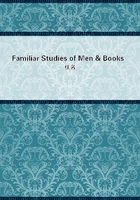Stones are often supposed to possess the property of bringing on rain, provided they be dipped in water or sprinkled with it, or treated in some other appropriate manner. In a Samoan village a certain stone was carefully housed as the representative of the rain-making god, and in time of drought his priests carried the stone in procession and dipped it in a stream. Among the Ta-ta-thi tribe of New South Wales, the rain-maker breaks off a piece of quartz-crystal and spits it towards the sky; the rest of the crystal he wraps in emu feathers, soaks both crystal and feathers in water, and carefully hides them. In the Keramin tribe of New South Wales the wizard retires to the bed of a creek, drops water on a round flat stone, then covers up and conceals it.
Among some tribes of North-western Australia the rain-maker repairs to a piece of ground which is set apart for the purpose of rain-making. There he builds a heap of stones or sand, places on the top of it his magic stone, and walks or dances round the pile chanting his incantations for hours, till sheer exhaustion obliges him to desist, when his place is taken by his assistant.
Water is sprinkled on the stone and huge fires are kindled. No layman may approach the sacred spot while the mystic ceremony is being performed. When the Sulka of New Britain wish to procure rain they blacken stones with the ashes of certain fruits and set them out, along with certain other plants and buds, in the sun. Then a handful of twigs is dipped in water and weighted with stones, while a spell is chanted. After that rain should follow. In Manipur, on a lofty hill to the east of the capital, there is a stone which the popular imagination likens to an umbrella. When rain is wanted, the rajah fetches water from a spring below and sprinkles it on the stone. At Sagami in Japan there is a stone which draws down rain whenever water is poured on it. When the Wakondyo, a tribe of Central Africa, desire rain, they send to the Wawamba, who dwell at the foot of snowy mountains, and are the happy possessors of a rain-stone. In consideration of a proper payment, the Wawamba wash the precious stone, anoint it with oil, and put it in a pot full of water. After that the rain cannot fail to come. In the arid wastes of Arizona and New Mexico the Apaches sought to make rain by carrying water from a certain spring and throwing it on a particular point high up on a rock; after that they imagined that the clouds would soon gather, and that rain would begin to fall.
But customs of this sort are not confined to the wilds of Africa and Asia or the torrid deserts of Australia and the New World. They have been practised in the cool air and under the grey skies of Europe. There is a fountain called Barenton, of romantic fame, in those wild woods of Broceliande, where, if legend be true, the wizard Merlin still sleeps his magic slumber in the hawthorn shade. Thither the Breton peasants used to resort when they needed rain. They caught some of the water in a tankard and threw it on a slab near the spring. On Snowdon there is a lonely tarn called Dulyn, or the Black Lake, lying in a dismal dingle surrounded by high and dangerous rocks. A row of stepping-stones runs out into the lake, and if any one steps on the stones and throws water so as to wet the farthest stone, which is called the Red Altar, it is but a chance that you do not get rain before night, even when it is hot weather. In these cases it appears probable that, as in Samoa, the stone is regarded as more or less divine. This appears from the custom sometimes observed of dipping a cross in the Fountain of Barenton to procure rain, for this is plainly a Christian substitute for the old pagan way of throwing water on the stone. At various places in France it is, or used till lately to be, the practice to dip the image of a saint in water as a means of procuring rain. Thus, beside the old priory of Commagny, there is a spring of St.
Gervais, whither the inhabitants go in procession to obtain rain or fine weather according to the needs of the crops. In times of great drought they throw into the basin of the fountain an ancient stone image of the saint that stands in a sort of niche from which the fountain flows. At Collobrières and Carpentras a similar practice was observed with the images of St. Pons and St.
Gens respectively. In several villages of Navarre prayers for rain used to be offered to St. Peter, and by way of enforcing them the villagers carried the image of the saint in procession to the river, where they thrice invited him to reconsider his resolution and to grant their prayers; then, if he was still obstinate, they plunged him in the water, despite the remonstrances of the clergy, who pleaded with as much truth as piety that a simple caution or admonition administered to the image would produce an equally good effect.
After this the rain was sure to fall within twenty-four hours. Catholic countries do not enjoy a monopoly of making rain by ducking holy images in water. In Mingrelia, when the crops are suffering from want of rain, they take a particularly holy image and dip it in water every day till a shower falls; and in the Far East the Shans drench the images of Buddha with water when the rice is perishing of drought. In all such cases the practice is probably at bottom a sympathetic charm, however it may be disguised under the appearance of a punishment or a threat.















